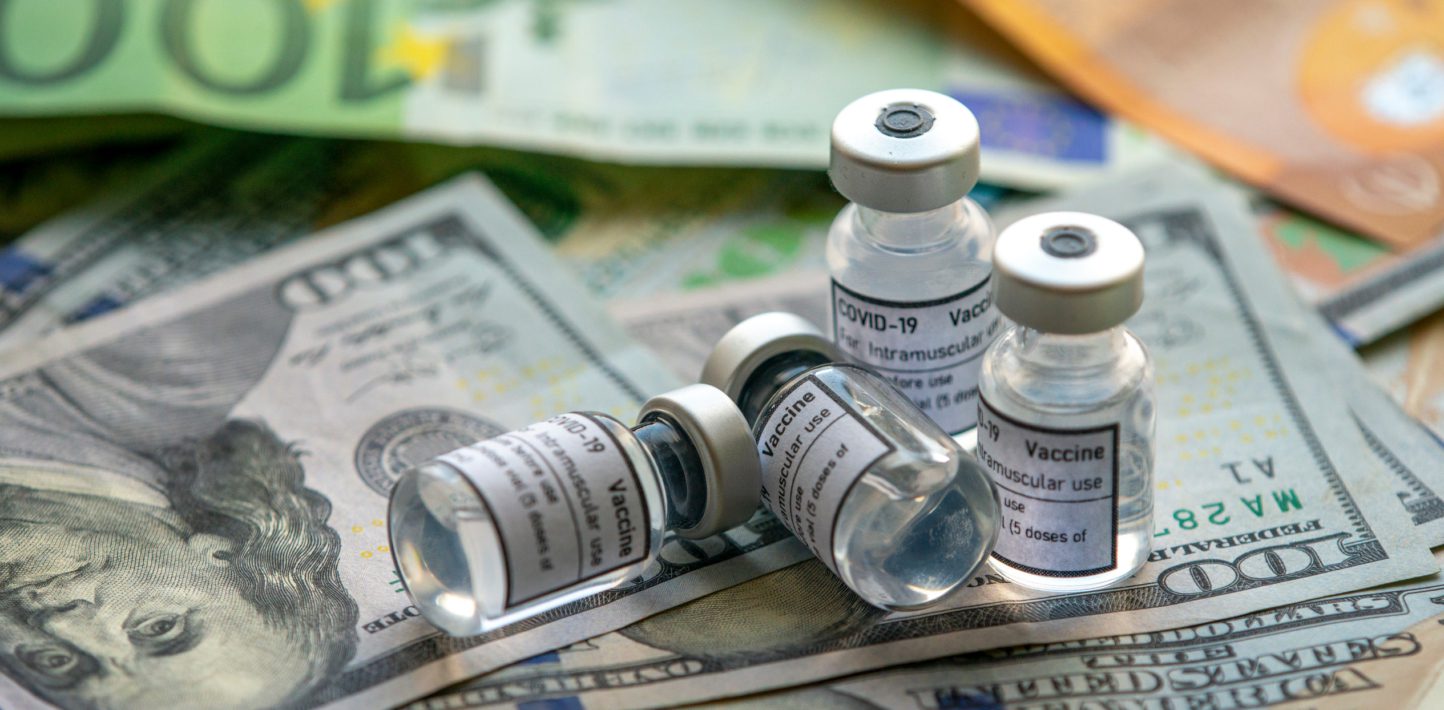Investors in companies manufacturing Covid-19 vaccines must use their influence to ensure that supplies of urgently needed life-saving vaccines reach low- and lower-middle-income countries, Amnesty International said today ahead of the Annual General Meetings (AGM) of Johnson and Johnson, Moderna and Pfizer on 28 April and AstraZeneca on 29 April.
With the World Health Organization’s (WHO) global target of a 70% vaccination rate in every country by July 2022 on course to be missed by a significant margin, pharmaceutical companies continue to obstruct fair access to Covid-19 vaccines by monopolizing technology, blocking and lobbying against the sharing of intellectual property, charging high prices for vaccines, and prioritizing supplies to wealthy countries.
Amnesty International is urging all institutional investors, including Baillie Gifford, Bank of America, Bank of NY Mellon, BlackRock, Capital Group, Morgan Stanley, State Street, UBS, Vanguard Group and Wellington Management, to use the AGMs to demand that AstraZeneca, Johnson and Johnson, Moderna and Pfizer meet their human rights responsibilities. They should also vote in favour of shareholder resolutions designed to facilitate the universal distribution of Covid-19 vaccines and ask the boards of each company about the steps that they are taking towards achieving the WHO vaccination target.
Institutional investors have reaped rich rewards from this profiteering and short sightedness, but are duty bound to ensure that their money does not contribute to human rights abuses
Mark Dummett, Head of Amnesty International’s Business and Human Rights team
“Pharmaceutical companies have human rights responsibilities yet continue to play a pivotal role in the scandalously unequal distribution of vaccines around the world. While they and their investors have enjoyed bumper profits from Covid-19 vaccines, low-income countries have received a tiny fraction of global supply and suffered a disproportionate number of deaths,” said Mark Dummett, Head of Amnesty International’s Business and Human Rights team.
“Institutional investors have reaped rich rewards from this profiteering and short sightedness, but are duty bound to ensure that their money does not contribute to human rights abuses. These AGMs represent a golden opportunity for them to correct course by bringing their considerable influence to bear on these companies. They should question each company’s board and support shareholder resolutions that could kickstart a long-awaited policy shift that puts people before profit.”
Amnesty International is calling on all institutional investors in Johnson and Johnson, Moderna and Pfizer to vote in favour of the shareholder resolution tabled by Oxfam America, which calls for the commissioning of shareholder reports on the transfer of Covid-19 vaccine technology that would enable manufacturers in low- and lower-middle-income countries to produce vaccines. This would be an important step to press the boards of each of these companies that they need to change direction and do more to ensure that vaccines reach low- and lower-middle-income countries, where vaccination rates remain very low.
According to Our World in Data, as of 25 April 2022, 65.1% of the world’s population has received at least one dose of a Covid-19 vaccine, but only 15.2% of people in low-income countries have received at least one dose.
Amnesty International is also calling on institutional investors to conduct comprehensive human rights due diligence on their investments, including by monitoring the impacts of the companies’ Covid-19 vaccine allocation policies on an ongoing basis. They must also take immediate action to prevent adverse impacts, mitigate risks, remedy any harm identified, and publicly disclose the results.
Background
In February 2022, Amnesty International published the report Money Calls the Shots: Pharma’s response to the Covid-19 vaccine crisis, which featured a scorecard assessment of the leading vaccine manufacturers: AstraZeneca plc, BioNTech SE, Johnson & Johnson, Moderna Inc., and Pfizer Inc. Pfizer and Moderna fared worst of all.
In 2021, Pfizer, BioNTech and Moderna projected revenues of up to US$54 billion, yet supplied less than 2% of their vaccines to low-income countries. Johnson & Johnson’s record on distribution was better, with 50% of their stock reaching low- and lower-middle-income countries, although many of these doses were provided as “donations” from upper-income countries, not as part of sales agreements. The company still refuses to share its technology and intellectual property through World Health Organization-coordinated initiatives and is abandoning its not-for-profit pricing model.
In advance of the AGMs in April 2022, Amnesty International wrote to more than 30 institutional investors in Covid-19 vaccine manufacturers, calling on them to use their considerable leverage to pressure the pharmaceutical companies to remove obstacles to reaching the WHO’s 70% vaccination target. The total investments in the vaccine providers owned or managed by these ten financial institutions amounts to more than US$250 billion.
END VACCINE INEQUALITY NOW
Right now, billions of people in low and lower-middle income countries are missing out on life-saving vaccines. Send emails directly to BioNTech, Johnson&Johnson, Moderna and Pfizer and call on them to end vaccine inequality and save millions of lives now.


